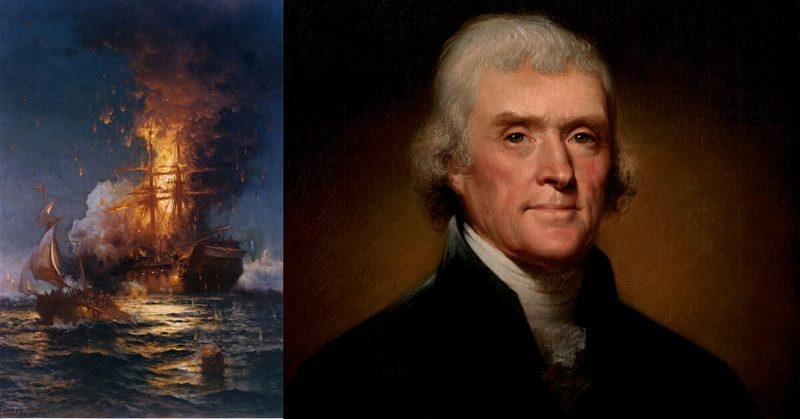The Set-Up
It was the very start of the 19th century. Thomas Jefferson had just become president of the still incredibly new United States of America. He was inheriting his own set of problems with the new country.
The issues which led to the First Barbary War were not unknown to him. In fact, he had addressed Congress on the same issues a decade before. Pirates ran rampant on the seas, and Africa was largely romanticized as the dark continent.
The First Barbary War is not thoroughly taught in U.S. history books, and sometimes not at all, though this particular technically “undeclared” war proved a very important fact — that the United States was capable of fighting its own battles far from home.
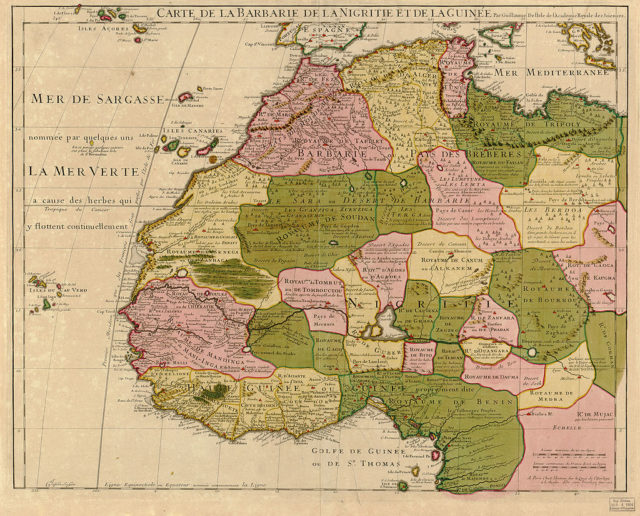
Barbary States
The Barbary States were what is now a large region of North Africa — particularly Morocco (which was, at the time, its own independent kingdom), and what would later be known as parts of the Ottoman Empire.
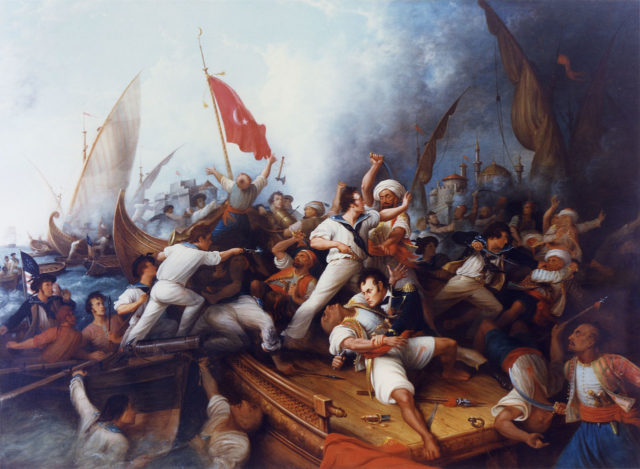
Piracy
In 1801, it was very common for pirates to attack shipping vessels in any part of the world. As the Mediterranean was an important waterway for European trade and even American trade, the sea was a vital spot for the livelihood of North African pirates. The African states of Morocco, Tripoli, Algiers, and Tunis, supported these Mediterranean pirates, backing them as they attacked foreign vessels, demanding tribute in exchange for safe passage.
Other nations knew it was happening and, for the most part, agreed to pay the price if it meant trade without the nuisance of pirates, and also if there was some fortuitous arrangement that could be made by paying — for example, if it meant the release of an important captive. In fact, it was so well accepted by the nations of the world that many hired out pirate ships to do their dirty work.
It could sometimes be quite advantageous to pay a private pirate operation, or even a state-run pirate operation, such as that of the North African states, to attack other countries’ shipping operations. Great Britain and France particularly paid large sums to North African countries to ensure they dominated Mediterranean trade for the most part.
A Set-Up For War
It happened in the year of 1801 that Tripoli government-supported pirates, also known as corsairs, demanded a hike in prices for this tribute from American vessels, using the excuse that the Americans were late in paying tribute that was originally owed. Perhaps it was because the British Navy quickly informed the North African nations that the U.S. Navy was vulnerable in its infancy, as the British Empire was still quite sore over losing its North American colonies.
At first, the British were correct. In fact, in the late 1700s, Algiers declared war on the United States and, captured several American vessels. At that time, the United States had no Navy and no money to pay tribute. Morocco did much the same, though the issue was able to be resolved diplomatically.
While the Atlantic Ocean was safe (at least comparatively) for U.S. vessels thanks to Portugal’s war with Algiers blocking Algerian ships from passing the Straits of Gibraltar, the Mediterranean was quite a different story. Later, Congress would even form a commission (made up of famous faces such as Thomas Jefferson, John Adams, and Benjamin Franklin) to deal with the issue.
Naval Power
Regardless, in 1801 the U.S. did have a Navy, thanks to its first six ships being built in 1794, and President Thomas Jefferson refused to pay the increased price. Tripoli declared war (though unofficially) by chopping down the U.S. Consulate’s flag.
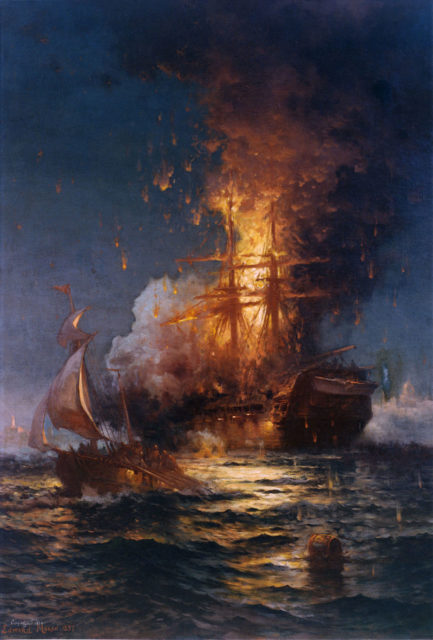
War
At that time, the United States Congress decided to allow the U.S. Navy and Military to go out in full force against Tripoli. Force was allowed while in the Mediterranean Sea, making it the first time the young nation fought overseas for their own interests. It didn’t take long for the U.S. Navy to make its first conquest, either.
On August 1st, 1801, the USS Enterprise defeated the Tripoli off the coast of Malta. Later the next year, the President sent additional Naval forces to the Mediterranean to ensure peace. For the next several years, the United States would maintain a Naval presence in the Mediterranean and work at diplomatic negotiations with the countries, to no final avail.
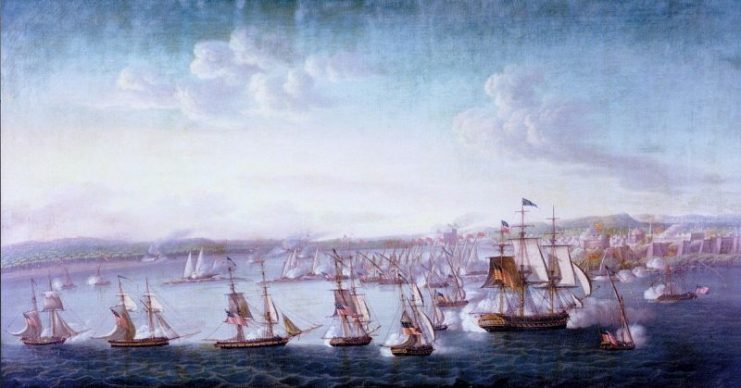
As the months passed, a new issue arose. One of the issues Thomas Jefferson had inherited as president was a crippling national debt. He wondered what would be more cost effective, ending the war and just paying the tribute Tripoli was still demanding, or keep going.
Skirmishes in the Mediterranean were still ongoing. The USS Philadelphia had the misfortunate to run aground in Tripoli in 1803, where the entire crew was imprisoned, and the enemy repaired and made use of the ship for their own purposes. In retaliation, a U.S. Navy team snuck into Tripoli one night and set the Philadelphia on fire.
Final Battle
However, in 1804, the U.S. Navy decided to attack the country of Tripoli and the most recognizable battle of the entire “unofficial” war took place in spring of 1805. It was the Battle of Derna.
U.S. Marines and mercenaries started out in Egypt, crossed 500 miles of the desert and attacked the city of Derna in Tripoli, were they easily conquered and planted their flag. The war ended in 1805, spawning much patriotism among the American States.
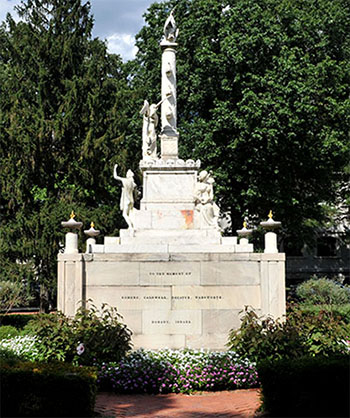
Today
Though the war is not much recognized in today’s American culture, you can find a Tripoli Monument at the U.S. Naval Academy in Annapolis, Maryland. The monuments honor several fallen officers and was carved in Italy. The monument at one time sat on the west terrace of the United States Capitol before being moved to its current location at the U.S. Naval Academy.
